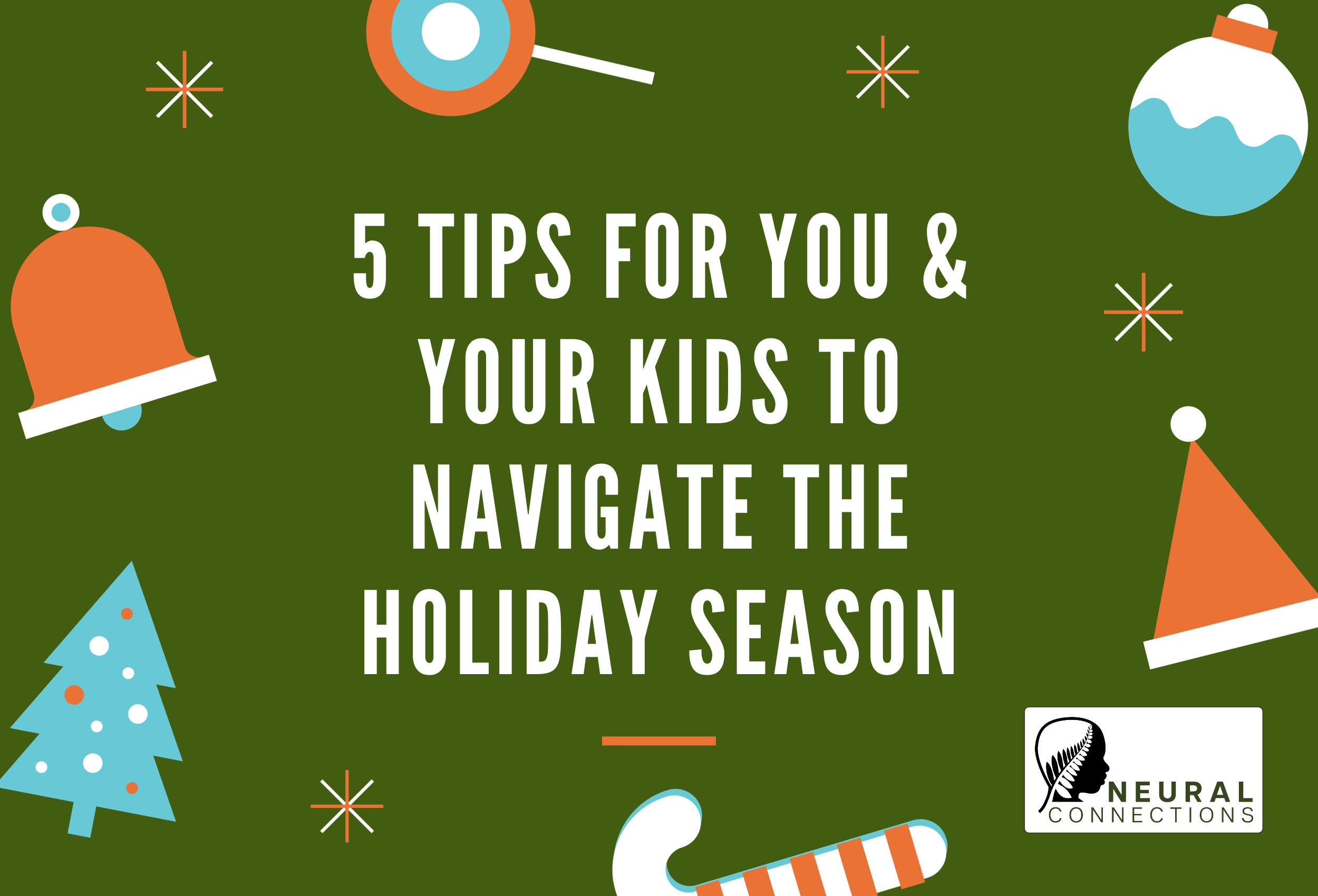5 Tips for You and Your Kids to Navigate the Holiday Season by Nourishing the Nervous System
Published: 1 Dec 2023
How do you stay centered through a busy holiday season? We’ve got some tips for you right here.
Ahh December! There’s a little magic in the air as we approach the end of the year. We’re a bit more excited, there are parties lined up and plenty to do as we make those holiday plans, and gather with friends and loved ones.
While this can be an exciting and fun time - it can also bring about its own unique brand of holiday stress. We might get caught up in the excitement of the holiday season and forget that our nervous systems still need to be nourished.
For some of us the holiday season can also be a difficult time - bringing up feelings of dread and overwhelm amidst the joy. Family dynamics can be challenging, and we can be triggered by interactions, even with our nearest and dearest. In a time like this, it’s always great to remember to go back to the fundamentals that help us and our children regulate and nourish our nervous systems and allow everyone to be fully present to savour each moment.
Here are some of our favourite tips to help you and your family navigate the holiday season. While this is great for anyone of any age - we’ve put this together with your kids in mind to keep them grounded and be able to enjoy the holidays better:
Keep some semblance of your routine: As we pack our calendars with meetups, parties and celebrations, always remember that we can still incorporate bits of a routine that keeps us grounded. Can’t go to a favourite workout or movement classes? Try replacing it with a family walk in the morning. Adapting your routine to a time that works can do wonders to help keep everyone centered.
Movement: Incorporate 10-min movement breaks through the day. Why not try a holiday music themed 10-min dance party? Movement and exercise floods your body with endorphins (the body’s natural painkillers) and helps boost serotonin (which boosts our mood and helps us feel happy, calm and confident).
Breathing and mindfulness practices: Research shows that some breath and mindfulness practices can increase the production of endorphins, serotonin and oxytocin. There’s also some research into how meditative practices can help release dopamine in the body. Check out this simple breath practice that you can do with your kids to get that cool, calm and collected feeling:
4. Lots of cuddles: Regulate your nervous system and your child’s through lots of hugging and cuddling. Hugging for a mere 7 seconds is enough for the brain to release oxytocin - often called the love hormone. Hugging also increases serotonin, a neurotransmitter known as the "feel good" hormone that is produced and spread by neurons in the brain. When serotonin flows freely, we feel good about ourselves — and the opposite is true when this hormone is absent
5. Supplements: We love magnesium as a supplement and not only because they are available as a transdermal cream, spray, and even oral tablets or capsules. This magnificent mineral has a multitude of benefits but our favourites are its positive effects on the nervous system, sleep, mood and even gut health and constipation. According to research being done on mice, magnesium helps boost dopamine levels as well - the hormone that helps us feel the reward of pleasure. Check out this great article that details all of the benefits of magnesium: https://www.healthline.com/nutrition/magnesium-benefits
Whichever tip you pick - these all help to keep you and your family feeling more balanced by regulating the nervous system or increasing the production of our 4 happy hormones - endorphins, oxytocin, serotonin and dopamine.
And if all of these feel too much - always simplify and go back to your basics! Wishing you the best holiday season from all of us at Neural Connections!
Caveat: Tips in this article should not be used as a substitute for medical or professional advice. Please check with a medical professional before you take any supplements. Always take professional help if you have questions.
At Neural Connections, we focus on offering treatment and protocols to help children regulate their emotions and behaviour better. Schedule a Discovery Call with us today to see if we can help.

